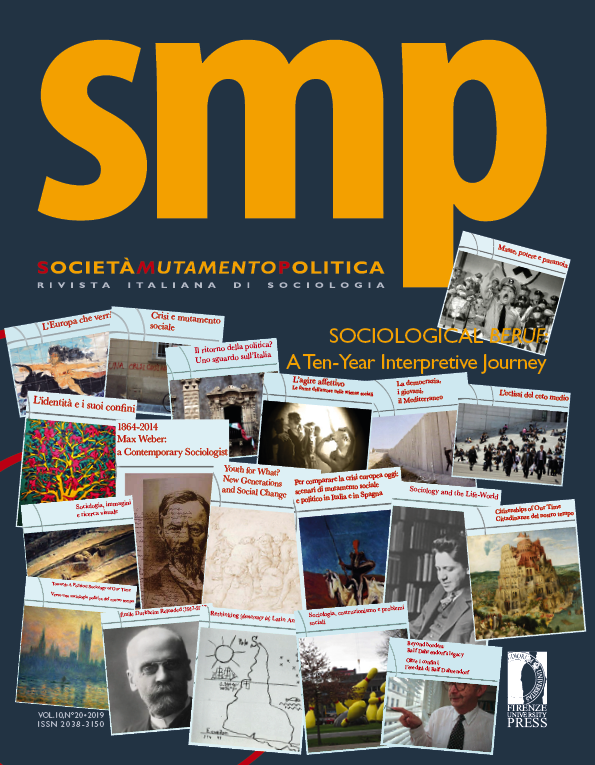On Weber’s Types of Empirical and Scientifico-theoretical Legal Training, and his Partiality for ‘Logic’
Published 2020-01-16
Keywords
- Weber,
- Puchta,
- Jhering,
- logic,
- logical
- theoretical and academic doctrine of law vs. artisanal-empirical doctrine of the law of practitioners,
- legal ‘system’,
- rational,
- rationalisation,
- conceptual jurisprudence,
- Pandect science ...More
How to Cite
Abstract
Weber uses the term ‘logical’ with striking frequency: as a typical attribute of what is ‘rational’, but also in the definition of legal arrangements, where the ‘legally relevant components’ that characterise a legal relationship are ordered in a ‘manner which is itself logically free from contradiction’. Logic or logically significant characteristics are all features of the theoretical and academic doctrine of law, which stands as a contrasting type to the artisanal-empirical doctrine of the law of practitioners (represented by Roman and English law respectively). In this way logic or what is logical is an important sign of the difference between these two fundamental types of legal doctrine. Above all, logic and the logical play an outstanding role in Weber’s definition of a legal ‘system’ in the sense of ‘an assembly of all the legal propositions established by analysis in such a way that, taken all together, they form a system of rules that is itself logically free from contradiction and seamless in principle’. In this definition of ‘system’ Weber makes use of the postulates of so-called conceptual jurisprudence, something that did not exist in fact, but which originally signified a deliberate caricature (or criticism) of the science of the Pandects, of which Georg Friedrich Puchta (1798-1846) stood as the representative. He was selected because Rudolf von Jhering had Puchta mainly in mind when he framed the polemical idea of conceptual jurisprudence. Puchta was also singled out because he spoke, inter alia, of a ‘genealogy of concepts’, which encouraged the ascription of systemic qualities to his system of private law. Yet Weber omitted to test Puchta’s ‘system’ according to his own ideal-typical criterion of a system that ‘logically free from contradiction’ and ‘seamless in principle’. This deficiency will be remedied here.


